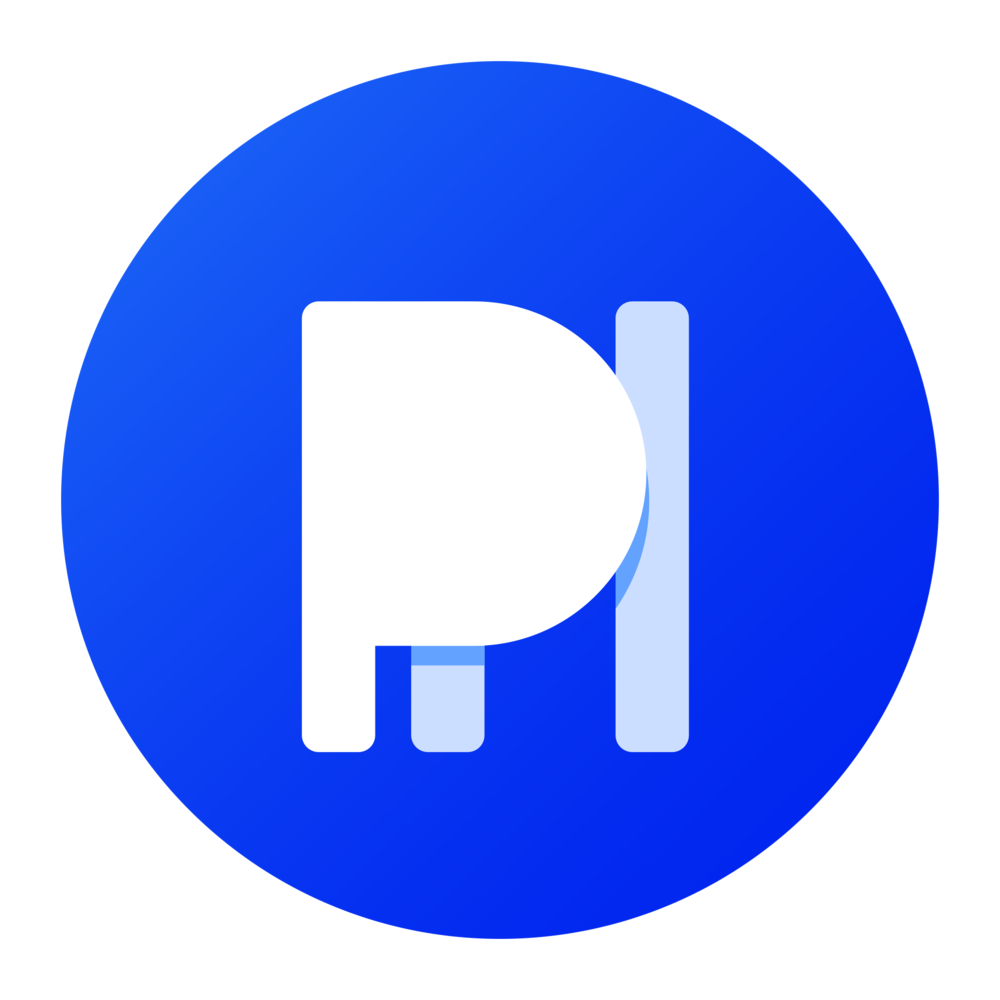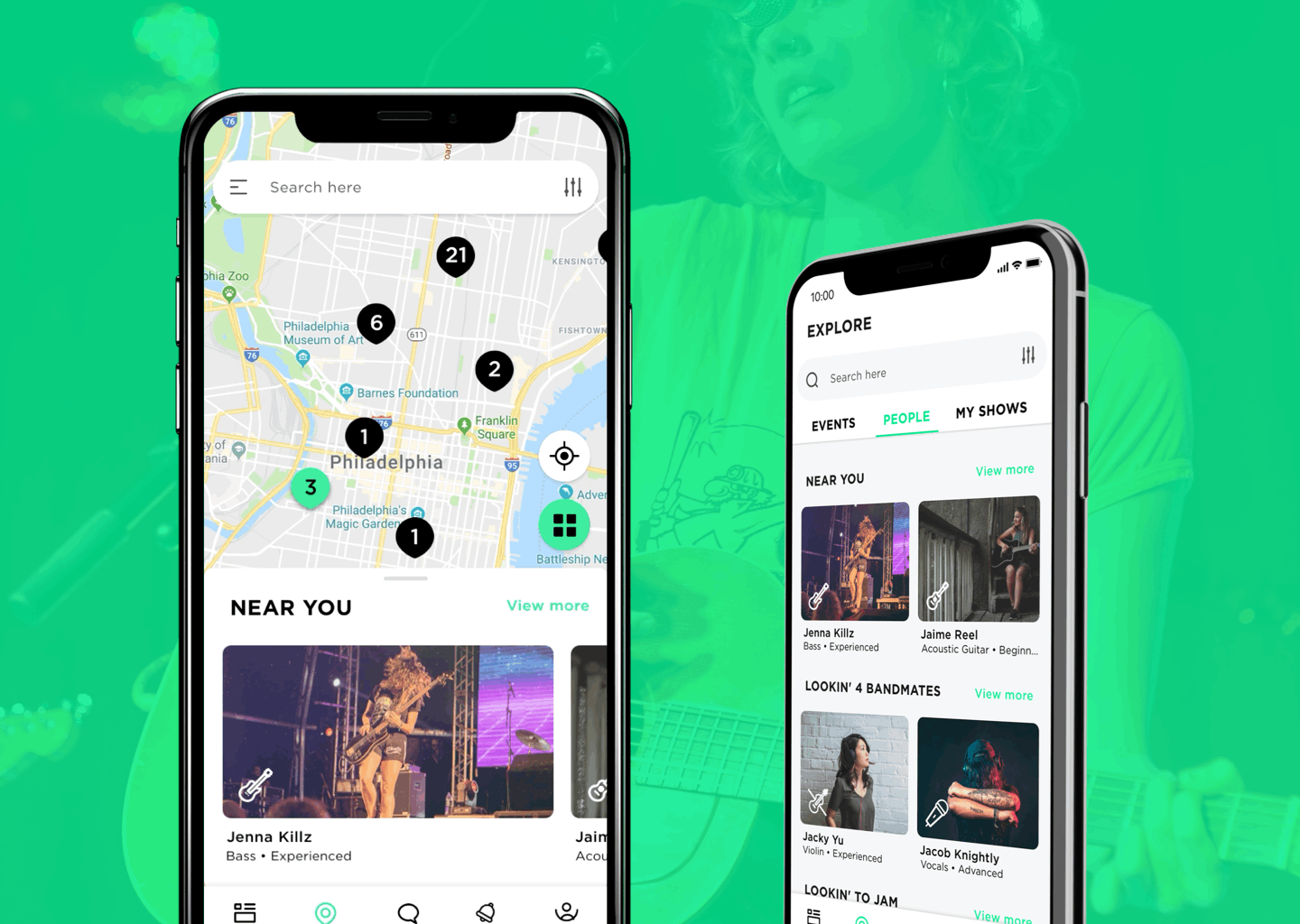UX Case Study
Plaze mobile app
Introduction
Plaze began with a problem… Co-Founder and advanced drummer Jamie Mallia hauled his drums to jam with a guitar player he met in college. After taking the time to set up their gear and start playing, Jamie realized there was a significant mismatch of skill between the two players. Simply put, this was not a beneficial session for either musician and was a source of frustration among them. When he reflected back on this experience, he realized that it could have been avoided. If he could determine the skill of another musician in advance in a quick and easy way, he would be aware of whether they would be compatible to play music together. Being able to find talented musicians and check out their skills in advance would greatly increase satisfaction when collaborating.
After many meetings, experiences, and learning about how musicians interact, we have developed a solution to solve the aforementioned problem and many others. Plaze empowers musicians, bands, and music vendors by connecting them on one platform and simplifying the process for people looking to collaborate, give or take lessons, book shows, or simply get to know their local music scene more intimately.
Some of our many Initial hypotheses
Among starting the initial venture of creating a mobile app that would connect musicians to one another and their communities the Plaze team had many hypotheses that needed some validation before jumping right into developing an app.
Musicians will be able to see musician backgrounds and experience for other local musicians in their area and communicate with them.
People want to share their musical activities with friends. Plaze will be their preferred platform because it is a designated platform for music.
Chat functions will serve as a bridge of communication to users.
Knowing what musicians are looking for prior to reaching out to them is a huge win for other musicians.
Musician profiles will give a complete picture of the most important aspects of a musician.
People are interested in sharing the content and experience that they have with other musicians and fans.
Project goal
Our main goal for the Plaze app is to create a platform where musicians can connect with their music community. This includes finding like-minded musicians, as well as, finding and playing local shows. Plaze should be a platform for all skill levels whether you’re starting out or have been playing for years. Plaze should be a place for finding entertainment where venues can find talent or show-goers can find local events in their area.
Let the research begin!
who we talked to…
Competitor Benchmark testing
Multiple behavior studies were run on two competitor apps that already exist in the app store today. Out of both of them, we began to see what was working within the apps and other aspects that were a complete miss.
Bandwidth
Musicians liked being able to find people around them with a map but hated its’ search functionality.
They liked having a profile but didn’t like that they could only have a profile for themselves and not for their band.
Messaging seemed kind of odd. They said they would feel awkward directly messaging another musician.
App was hard to navigate and was not like other apps they have used.
Want the ability to post images and videos to their profile.
Vampr
This is a lot like Tinder… that’s really weird.
I don’t like that I don’t get to choose who I get to see. (couldn’t search for other musicians)
Didn’t like that when they “swiped” on another musician that it sends them a message.
Seeing another musician’s profile was very difficult and then when they found it had very little information (profile picture and bio…)
I can’t find anyone with the same musical preference as me ( Interviewee went through about 25 users)
User Interview takeaways
On synthesis of my notes, Plaze had a handful of mindsets that seemed to emerge most frequently. We had 2 major buckets that most musicians fell into.
Connectors
These were musicians avidly seeking out other people to play music with. They also were constantly looking on Facebook groups and local DIY pages to try and find local shows to go to and play at. We also found something interesting about this group as well. Connectors had subcategories of musicians that we were able to break up into a layer deeper. These two subgroups we called Strict and Casual.
Strict connectors were the musicians that were on these apps, Facebook pages, and craigslist posts every day and were aggressively looking for events and functions.
Casual connectors were musicians were people that wanted to play at shows and with other people but let it happen more organically, like meeting someone at a show or playing music with a co-worker.
Learners
These types of musicians are people who want to learn. Learning to play an instrument was their new year’s resolution or a hobby and they wanted to get better. These were the musicians that played open mic nights every once in a while and were often looking for a music instructor. Like the Connectors, we also broke the Learner segment into subcategories.
Strict Learners were musicians that were taking lessons regularly and were learning to play multiple instruments. They were serious about finding a music instructor and have had multiple instructors over the years.
Casual Learners were musicians that are teaching themselves how to play or were looking for lessons but for cheap. Music is definitely a lax hobby and they don’t really play shows but LOVE going to them.
Problem Discovery
3 main problems emerged from our research.
Musicians do not have one trustworthy source for finding other musicians and events. They bounce back and forth between Facebook DYI pages, Craigslist, Bands-in-town, and many other sources for information about local shows or musicians close to them.
Musicians have no way of telling whether or not the person they are deciding to meet up with is actually good at playing music or even like to listen/play to the same music as them.
The normal social platforms that they use on a daily basis are not music-specific and are often muddied with other social noise that isn’t music.
The Solution
A music community fed newsfeed
Newsfeed is a personalized, aggregated list of people, places, and events in your local music scene! It is designed to keep users musically informed, interested, and engaged in their city, town, or region.
Create and find musician profiles
Profile is the main showcase for users to share information about themselves, their musical background, and music portfolio. This is how users can get to know each other and assess whether collaboration or connection would be beneficial for them. Profiles can give a complete picture of musical taste, skill, and intent for being on the app.
Explore the music scene around you
Explore is another major area within Plaze where users can search for specific people or vendors in their area. Leveraging suggested search functionality and other filters, users can browse their scene for musicians to meet, shows to attend and even teachers to learn from!
Talk to other musicians just like you
Talk to the music community around you. Musicians can communicate with each other as well as contact stores, venues, teachers, and other vendors that are on the app. Having a dedicated communication channel for music-related needs will solve the problem of messages getting lost in texts or email inboxes.
IN CONCLUSION
As Plaze works toward developing its' first beta on TestFlight I look forward to seeing user validity and I’m hoping that Plaze is able to increase retention once the mobile app is released. I really hope it serves musicians across the music community.












